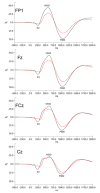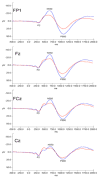Alcohol and the sleeping brain
- PMID: 25307588
- PMCID: PMC5821259
- DOI: 10.1016/B978-0-444-62619-6.00024-0
Alcohol and the sleeping brain
Abstract
Alcohol acts as a sedative that interacts with several neurotransmitter systems important in the regulation of sleep. Acute administration of large amounts of alcohol prior to sleep leads to decreased sleep-onset latency and changes in sleep architecture early in the night, when blood alcohol levels are high, with subsequent disrupted, poor-quality sleep later in the night. Alcohol abuse and dependence are associated with chronic sleep disturbance, lower slow-wave sleep, and more rapid-eye-movement sleep than normal, that last long into periods of abstinence and may play a role in relapse. This chapter outlines the evidence for acute and chronic alcohol effects on sleep architecture and sleep electroencephalogram, evidence for tolerance with repeated administration, and possible underlying neurochemical mechanisms for alcohol's effects on sleep. Also discussed are sex differences as well as effects of alcohol on sleep homeostasis and circadian regulation. Evidence for the role of sleep disruption as a risk factor for developing alcohol dependence is discussed in the context of research conducted in adolescents. The utility of sleep-evoked potentials in the assessment of the effects of alcoholism on sleep and the brain and in abstinence-mediated recovery is also outlined. The chapter concludes with a series of questions that need to be answered to determine the role of sleep and sleep disturbance in the development and maintenance of problem drinking and the potential beneficial effects of the treatment of sleep disorders for maintenance of abstinence in alcoholism.
Keywords: REM; acute alcohol K-complex; alcoholism; slow-wave sleep.
© 2014 Elsevier B.V. All rights reserved.
Figures







References
-
- Adamson J, Burdick JA. Sleep of dry alcoholics. Arch Gen Psychiatry. 1973;28(1):146–9. - PubMed
-
- Aldrich M. National Institute on Alcohol Abuse and Alcoholism Research Monograph 33 Alcohol Problems and Aging. U.S. Department of Health and Human Services; 1998. Effects of alcohol on sleep; pp. 281–300.
-
- Allen RP, Wagman AM. Do sleep patterns relate to the desire for alcohol? In: Grosss Milton M., editor. Alcohol Intoxication and Withdrawal. New York: Plenum Press; 1975. pp. 495–508. - PubMed
-
- Allen RP, Wagman AM, Funderburk FR. Slow wave sleep changes: alcohol tolerance and treatment implications. In: Gross Milton M., editor. Alcohol Intoxication and Withdrawal IIIA. New York: Plenum Press; 1977. pp. 629–640. - PubMed
-
- Amzica F, Steriade M. The K-complex: its slow (<1-Hz) rhythmicity and relation to delta waves. Neurology. 1997;49(4):952–9. - PubMed
Publication types
MeSH terms
Substances
Grants and funding
LinkOut - more resources
Full Text Sources
Other Literature Sources
Medical

